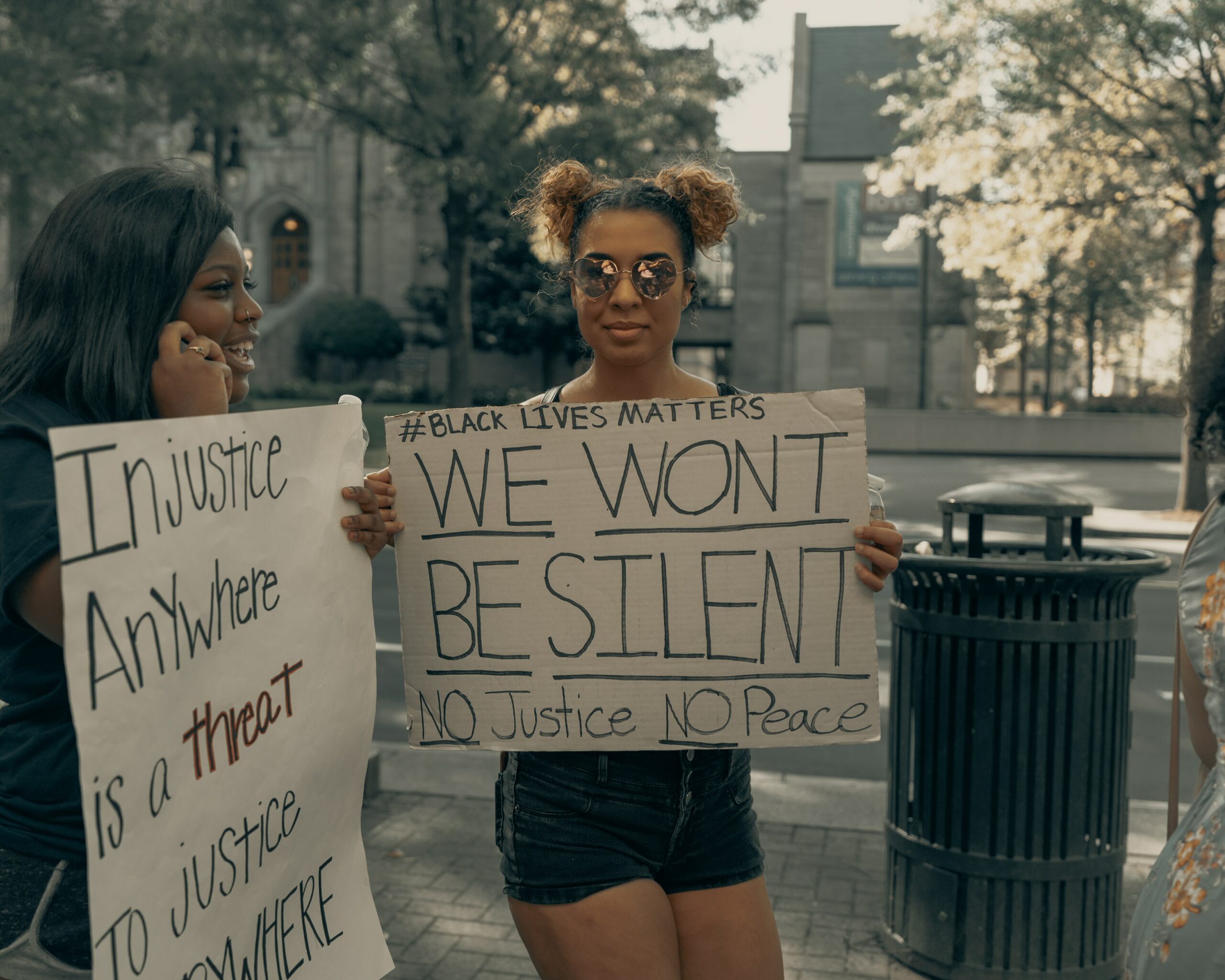Speaking Out Against Racism
We sometimes refer to libraries, archives and museums as “memory institutions.” That’s not a bad description. But it’s not complete. Because memory implies something that is in the past. Something that isn’t active. And so much of what happens in the work we do for our communities happens now, today, this very minute.
What is happening now requires a response. We must speak out against racism and injustice.
I don’t often comment on the news headlines, even on my own blog. But the events of the last week leave me with such a strong mix of disbelief, anger and sadness that I feel compelled to do so on behalf of myself and OCLC.
We all share values that vehemently oppose this horrible act. We also oppose the systems and ongoing injustices that led to the killing of George Floyd. The police officers thought they had silenced George Floyd’s voice, but instead his voice now echoes across the world, calling out for justice and change.
George’s brother, Terrence Floyd, said his family is, “a peaceful family. My family is God-fearing.” And he said, “in every case of police brutality the same thing has been happening. You have protests, you destroy stuff … so they want us to destroy ourselves. Let’s do this another way.”
Moments that Shape Our Lives
I have shared previously that my parents provided support and a respite for people who were abused, addicted, and abandoned. My childhood home was filled with people from all races, regions and religions. Our county in Maryland occasionally had racist activity, and I saw what racial hatred did in a personal way. One day stands out in particular to me as I was taunted for having an African American person living in our house. Later, as an undergraduate in Pennsylvania, I asked someone to be my roommate. The fact that he was Puerto Rican was something that didn’t even cross my mind. I remember coming back to that room and finding racial epithets on the dorm room door on several occasions and trying to scrub them off before he saw them. Those experiences gave me a small glimpse, a window into a worldview that shook me.
In the 1990s I was in law school in Baltimore and took a class called “Race in the Law.” The professor, Michael Higginbotham, is the author of Ghosts of Jim Crow: Ending Racism in Post-Racial America and Race Law: Cases, Commentary and Questions. His class had a measurable impact on my life. In Professor Higginbotham’s class, I began to understand the interplay of race and the law in a way that further shaped my views about the terrible, systemic effects of racism.
But understanding racism and knowing what to do to fight it are different. I am on a lifelong journey to learn, understand, and improve.
And then, finally, we think we see progress. We seem to take a few steps forward and then this type of horror is unveiled again….and again.
The Influence of Dr. Martin Luther King, Jr.
A few years ago, former OCLC Board member and CEO & Library Director Loretta Parham hosted an event in the Robert W. Woodruff Library of the Atlanta University Center. This library holds the papers and several personal effects of Dr. Martin Luther King, Jr. One of the most moving and memorable events in my life was having the opportunity to see his passion and his work up close. I could feel the emotion and the cause for which he fought. I was overtaken by my own emotions as I saw how he carefully constructed his powerful and enduring messages.
His words today are as relevant as ever:
“I have a dream that my four children will one day live in a world where they will not be judged by the color of their skin but by the content of their character.”
We remain committed and hopeful that the dream will one day be reached even amid the horrifying realities of today.
At OCLC, we’ll be dedicating Friday June 5 as a day for our staff to reflect on these events, to engage, be active and support the African American community in a way that is in line with their values. Because reaching Dr. King’s dream requires more than preserving his memory — or George Floyd’s — it requires engagement and commitment.
OCLC stands in solidarity with our libraries and the communities they serve to oppose systemic racism and injustice. Resources for individuals, families, and communities to talk about racism, racial identity and the way these forces shape every aspect of society are available at, “Talking About Race,” a web portal from the National Museum of African American History and Culture. OCLC’s WebJunction and the nonprofit organization Legal Services Corporation have partnered to design and deliver free national online training for public library staff that will strengthen access to civil legal justice through public libraries. OCLC WebJunction’s two-part article series, “Racial Equity in the Library,” for library staff to start or to continue the process of understanding, listening and conversing can be found here. We have also joined in the signing of a letter to the Columbus City Council, near our headquarters, declaring racism as a public health crisis.
OCLC is woven into the library community in important ways, and mobilizes its convening power to support learning, action and change. I have asked my colleagues to mobilize the power of our networks to also learn more about how libraries are responding to the urgent social and moral questions posed by recent events, and to identify how we can support them more closely. We will certainly have more initiatives to announce in the future.
What’s Ahead
May we reflect; seek first to understand; and may we all learn to love and learn from each other more tomorrow than we did yesterday.
Photo Credit: Clay Banks


